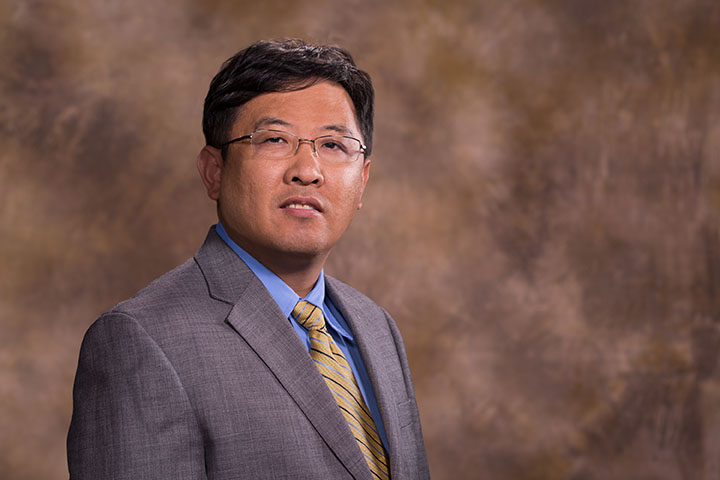Protecting Identities in a Sea of Big Data
FAYETTEVILLE, Ark. — Recent studies have shown that statistics generated by genomic studies do not completely conceal their participants’ identities.
Xintao Wu, a computer scientist at the University of Arkansas, is working to change that.
Wu will use two National Science Foundation grants totaling $436,713 to build an education framework for genetic privacy protection, collaborating with Xinghua “Mindy” Shi, assistant professor of bioinformatics and genomics at the University of North Carolina, Charlotte.
“How we protect genetic privacy has become a very important and challenging topic as the era of personal genomics is quickly approaching,” Wu said. “Genotype data with attached traits, for example diseases, are very sensitive.”
Wu, a professor in the Department of Computer Science and Computer Engineering, has more than a decade of experience in research and teaching in the area of data mining, data privacy and security, and database application testing. His research group is developing solutions to protect the privacy of human subjects when mining tabular data, social network data, healthcare data and genetic data.
He will collaborate with Shi and with cancer and Alzheimer’s disease researchers at two Houston-based medical facilities – Baylor College of Medicine and MD Anderson Cancer Center – to build a web-based tool to provide researchers secure, reliable and privacy-preserving access to anonymous genomic raw data and statistics.
Wu and Shi will also systematically evaluate potential privacy breaches due to released genomic statistics and analyses. They will design genetic privacy course modules and hands-on projects on privacy infringement and protection to enhance genetic privacy education in computer science, bioinformatics and genomics.
On a third project, the University of Oregon awarded Wu $170,002 from a National Institutes of Health grant to establish privacy preservation techniques for mining individuals’ sensitive biomarker data, physical activities and social activities. The project builds on a database of 500 individuals and develops data mining and big data analysis tools to help understanding the influence of healthcare social networks on sustained weight loss.
Wu holds the Charles D. Morgan/Acxiom Endowed Graduate Research Chair in the College of Engineering.
About the University of Arkansas: The University of Arkansas provides an internationally competitive education for undergraduate and graduate students in more than 200 academic programs. The university contributes new knowledge, economic development, basic and applied research, and creative activity while also providing service to academic and professional disciplines. The Carnegie Foundation classifies the University of Arkansas among only 2 percent of universities in America that have the highest level of research activity. U.S. News & World Report ranks the University of Arkansas among its top American public research universities. Founded in 1871, the University of Arkansas comprises 10 colleges and schools and maintains a low student-to-faculty ratio that promotes personal attention and close mentoring.
Contacts
Xintao Wu, professor, Department of Computer Science and Computer Engineering
College of Engineering
479-575-6519,
xintaowu@uark.edu
Chris Branam, research communications writer/editor
University Relations
479-575-4737,
cwbranam@uark.edu
